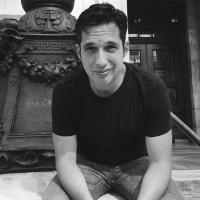Watchmen: Rorschach and the 7th Cavalry Explained
HBO's Watchmen introduces the Rorschach inspired 7th Cavalry. We explain how they came to be.
This article contains spoilers for Watchmen episode 1 and the original book. We have a spoiler free review right here.
Perhaps the best known (and strangely beloved) character from Alan Moore and Dave Gibbons’ Watchmen was the masked vigilante known as Rorschach. The brutal crimefighter was always a fan favorite, both because of his striking design (the mysterious mask which displays Rorschach Test patterns as it obscures his entire face) and his uncompromising, relentless drive to solve the murder of the Comedian that drives the original story.
So with Walter Kovacs, the original Rorschach, unavailable (by virtue of having been blasted into atoms at the conclusion of the book by Dr. Manhattan) for HBO’s Watchmen, how does the show manage to incorporate the story’s most recognizable character? By having others take up his iconic mask, if not his actual mission, of course. And that’s where the 7th Cavalry (or, as the show apparently spells it, the 7th Kavalry, to avoid confusion with the famed US Army regiment that fought in the American Indian Wars under the command of a certain Gen. George A. Custer, although that in itself seems significant) come in.
As presented in the first episode of Watchmen, the 7th Kavalry is a white supremacist organization whose members wear Rorschach masks. They were responsible for an event known as “The White Night” where police officers were targeted in their homes and attacked. In other words, the 7th Kavalry are more than mere KKK stand-ins, as they hold police officers in as low regard as they do those of other races.
So why make Rorschach-inspired characters into full blown white supremacists?
Moore and Gibbons based Rorschach on Steve Ditko’s The Question, a character who, like his creator, was inspired by the tenets of Ayn Rand’s philosophy of Objectivism. Ditko was politically conservative, the Question and his adventures reflected that, and Rorschach adhered to a distorted, amplified version of those beliefs, seeing the world in purely black and white terms. It’s this philosophical refusal to compromise which ultimately gets Rorschach killed. Having learned the truth about former superhero Adrian Veidt’s plan to engineer world peace and avert World War III at the cost of millions of innocent lives, Rorschach was prepared to tell the world, and was instead disintegrated by Dr. Manhattan. But conservative beliefs and objectivism don’t add up to white supremacy, so something happened in the 24 years between Rorschach’s death and the events of HBO’s Watchmen to allow the 7th Kavalry to take up his mask on their terms.
read more: Every Easter Egg in HBO’s Watchmen
In his civilian identity of Walter Kovacs, Rorschach was an avid reader of New Frontiersman, a reactionary right wing publication, and before his death, he mails his journal off to his favorite magazine. The original Watchmen ends with Rorschach’s journal having been delivered to the New Frontiersman offices, but tossed on the “crank file” of disreputable submissions. In the book, it’s left ambiguous as to whether or not the contents of Rorschach’s journal would ever be made public.
But thanks to the Watchmen supplemental materials for the show being published as “Peteypedia” we now know that excerpts of Rorschach’s Journal were indeed published in New Frontiersman, but that was such a widely discredited publication that nobody paid them much attention. It did spark the interest of the counterculture and various conspiracy theorists though, and the FBI memorandum “Veidt and Rorschach” goes into detail about how the journal was even published in its entirety in the 1990s, but was treated as a curiosity at best, or even a work of pure fiction.
As a result, Veidt’s role in engineering the cessation of hostilities between the United States and the Soviets and the deaths of millions was never taken seriously, and Veidt himself presciently dismissed the allegations as “quite literally, fake news.” On the other hand, it’s possible that the very name of the 7th Kavalry is a jab at Veidt. In a 1975 interview with Nova Express (the progressive counterpoint to the conservative New Frontiersman) excerpted in Watchmen, Veidt tells a reporter:
“I see twentieth century society as a sort of race between enlightenment and extinction. In one lane you have the four horsemen of the apocalypse [and in the other] the seventh cavalry.”
read more: How HBO’s Watchmen Was Brought to Life
But not everyone dismissed Rorschach’s journal as a work of fiction. It certainly had an effect on the 7th Kavalry. Their threatening video manifesto offers quotes from entries in Rorschach’s journal that should sound quite familiar to Watchmen fans. However, it’s all a little garbled, and some of it is (intentionally?) misquoted while the rest is mashed up with modern alt-right jargon. While Rorschach was never a character to be emulated even on his best day, imagine if only the worst parts of his writings were circulated to the kind of soft-brained nitwits who populate white supremacist groups in this country, and an organization like the 7th Kavalry suddenly doesn’t seem all that far-fetched.
Mike Cecchini is the Editor in Chief of Den of Geek. You can read more of his work here. Follow him on Twitter @wayoutstuff.
